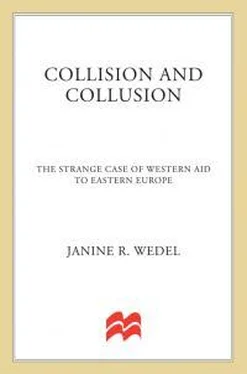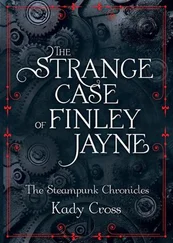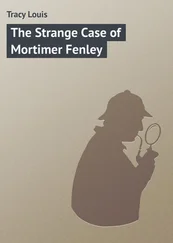72. Frontline “Return of the Czar” interview with E. Wayne Merry, PBS website www.pbs.org\wgbh\pages\frontline\shows\yeltsin\interviews\merry.html.
73. Svetlana P. Glinkina, “Privatizatsiya and Kriminalizatsiya: How Organized Crime Is Hijacking Privatization,” Demokratizatsiya: The Journal of Post-Soviet Democratization vol. 2, 1994, pp. 385-391; Glinkina, Kriminelle Komponenten der Russischen Wirtschaft: Typen und Dimensionen, Köln, Germany: Berichte des Bundesinstituts für Ostwissenschaftliche und Internationale Studien, 1997; and Glinkina, “The Ominous Landscape of Russian Corruption,” Transitions, March 1998, pp. 16-23.
74. Louise I. Shelley, “Privatization and Crime: The Post-Soviet Experience,” Journal of Contemporary Criminal Justice, vol. 11, 1995, pp. 244-256.
75. For discussions of the role and pervasiveness of organized crime in Russia, see Robert J. Kelly, Rufus Schatzberg, and Patrick J. Ryan (“Primitive Capitalist Accumulation: Russia as a Racket,” Journal of Contemporary Criminal Justice, vol. 11, no. 4, 1995, pp. 257-275), Louise I. Shelley (“Statement on Post-Soviet Organized Crime for House Committee on International Relations,” April 30, 1996; “Privatization and Crime: The Post-Soviet Experience,” Journal of Contemporary Criminal Justice, vol. 11, no. 4, 1995, pp. 244-256; “Post-Soviet Organized Crime: Implications for Economic, Social and Political Development,” Demokratizatsiya: The Journal of Post-Soviet Democratization, vol. 2, no. 3, summer, 1994, pp. 341-358), J. Michael Waller (“Organized Crime and the Russian State: Challenges to U.S.-Russian Cooperation,” Demokratizatsiya: The Journal of Post-Soviet Democratization, vol. 2, no. 3, summer, 1994, pp. 364-385) and Michael J. Waller and Victor J. Yasmann (“Russia’s Great Criminal Revolution: The Role of the Security Services,” Journal of Contemporary Criminal Justice, vol. 11, no. 4, 1995, pp. 276-297).
76. “New Round of Yeltsin Decrees Spurs Reform,” Current Digest, vol. 46, July 13, 1994, pp. 7-8.
77. Glenn Bryant, “State Duma Election Returns, 1995,” Demokratizatsiya: The Journal of Post-Soviet Democratization, vol. 4, no. 3, summer 1996, pp. 420-421.
78. Interfax, June 5, 1997, reported in Peter Reddaway, “Questions about Russia’s ‘Dream Team,’” Post-Soviet Prospects, vol. 5, no. 5, Washington, D.C.: Center for Strategic and International Studies, September 1997.
79. Data from the Centre for International Sociological Research, Moscow (based on 1,000 respondents across Russia), reported in The Economist, March 15, 1997.
80. Letter from Graham Allison, professor at Harvard’s John F. Kennedy School of Government, addressed “Dear Colleague,” summarizing the proceedings of the Second Annual U.S.-Russia Investment Symposium, titled “Financial and Direct Investment Opportunities in Russia,” held January 9-11, 1998, at Harvard’s John F. Kennedy School of Government.
81. “Remarks of Moscow Mayor Yuri Luzhkov,” U.S.-Russian Investment Symposium, Kennedy School of Government, Harvard University, transcript of the simultaneous translation, January 11, 1998, p. 3.
82. Vladislav Borodulin, “Rebirth of the Commission on Economic Reform: Chubais Becomes Fully Empowered Symbol of Economic Reforms,” Kommersant-Daily, January 20, 1995, p. 2, translated in Current Digest, vol. 47, no. 3, February 15, 1995, p. 23.
83. Olga Kryshtanovskaya, “The Real Masters of Russia,” Argumenty i Fakty, no. 21, May 1997, reprinted in Johnson’s Russia List.
84. Maxim Boycko, Andrei Shleifer, and Robert Vishny, Privatizing Russia, Cambridge, MA: MIT Press, 1995, p. 5.
85. Published in Rossiiskie Vesti on August 15, 1996, cited in “Chubais Controls Presidential Decree Process,” OMRI Daily Digest, vol. 148, August 15, 1996.
86. Information provided by Walter Coles, June 5, 1996. For further information about the “public education” program, as well as the story of how the Chubais Clan used it to promote Chubais’s political party, see Janine R. Wedel, “Clique-Run Organizations and U.S. Economic Aid,” Demokratizatsiya: The Journal of Post-Soviet Democratization, vol. 4, no. 4, Fall 1996, pp. 580-581; and Mark Ames and Matt Taibbi, The Exile, New York, NY: Grove Press, 2000, pp. 54-56.
87. Interview with Walter Coles, June 6, 1996.
88. For details of this case, see Janine R. Wedel, “Clique-Run Organizations and U.S. Economic Aid: An Institutional Analysis,” Demokratizatsiya: The Journal of Post-Soviet Democratization, vol. 4, no. 4, fall 1996, pp. 592-593.
89. U.S. General Accounting Office, Foreign Assistance: Harvard Institute for International Development’s Work in Russia and Ukraine, Washington, D.C.: GAO, November 1996, p. 8.
90. Interview with Charles Cadwell, September 5, 1996.
91. Ibid.
92. Interview with Leonid Abalkin, February 27, 1996.
93. Interview with Sergei V. Burkov, chairman of the Committee for Property, Privatization, and Economic Activity of the State Duma of the Federal Assembly of the Russian Federation, June 20, 1994.
94. Interview with William B. Taylor, August 9, 1996.
95. Interview with Walter Coles, June 6, 1996.
96. The authors acknowledge that HIID “supported” the writing of the book. The New Republic (Stephen Kotkin, “Stealing the State,” April 13, 1998, p. 30) reports that this support was provided by USAID through HIID. However, the author was unable to confirm direct USAID support for the project.
97. Maxim Boycko, Andrei Shleifer, and Robert Vishny, Privatizing Russia, Cambridge, MA: MIT Press, 1995, p. 142.
98. Interview with Ambassador Richard L. Morningstar, U.S. aid coordinator to the former Soviet Union, February 11, 1997.
99. For details of U.S. unequivocal support of Boris Yeltsin and the “Reformers,” see Frontline “Return of the Czar” interviews with former officials at the U.S. Embassy in Moscow, Thomas Graham, E. Wayne Merry, and Donald Jensen, PBS website www.pbs.org\wgbh\pages\frontline\shows\yeltsin\interviews\merry.html.
100. Maxim Boycko, Andrei Shleifer, and Robert Vishny, Privatizing Russia, Cambridge, MA: MIT Press, 1995, p. 128.
101. Interview with Thomas A. Dine, August 16, 1996.
102. Interview with Walter Coles, July 25, 1996.
103. Information provided by USAID’s Deidre Clifford, September 22, 1996.
104. Interview with USAID’s Cecilia Ciepiela, August 5, 1996.
105. U.S. General Accounting Office, Foreign Assistance: Harvard Institute for International Development’s Work in Russia and Ukraine, Washington, D.C.: General Accounting Office, November 1996, p. 60.
106. For example, while the supervisory board nominated Maxim Boycko, a member of the Chubais Clan, to run the RPC, Boycko chose its directors, of which Vasiliev is one. (Based on information provided by Ralf-Dieter Montag-Girmes of the Russian Privatization Center, July 26, 1995.)
107. Interview with Ira Lieberman, July 23, 1996.
108. Ibid.
109. Interview with Walter Coles, June 6, 1996.
110. U.S. General Accounting Office, Foreign Assistance: Harvard Institute for International Development’s Work in Russia and Ukraine, Washington, D.C.: GAO, November 1996, p. 57.
111. As of June 1996, Japan was the largest contributor among the G-7, according to Ralf-Dieter Montag-Girmes, director of postprivatization support with the Russian Privatization Center, in an interview of June 12, 1996.
Читать дальше












